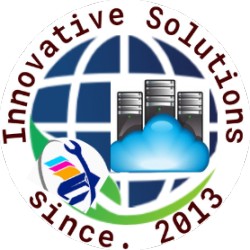|
Class |
Module |
Duration |
|
Module 1: Introduction to Databases (Class 2) |
||
|
Day 1 |
Understanding the significance of databases in modern computing. Exploring different types of databases, including SQL and NoSQL. Delving into foundational concepts of relational databases: schemas, tables, and relationships. Introduction to MySQL and its role as a popular relational database management system. Real-life examples illustrating the importance and practical applications of databases. |
1.5 Hours |
|
Day 2 |
Step-by-step guide to installing and configuring MySQL 8 server on a Windows 10 environment. Basics of database security principles, including user management and authentication. Overview of the MySQL ecosystem, including connectors, clients, and the server itself. Enabling remote access to MySQL using tools like MySQL Workbench and SQL Yog. |
1.5 Hours |
|
Module 2: Working with SQL (Class 4) |
||
|
Day 3 |
Granting user access permissions to databases. Creating databases and tables in MySQL. Understanding and utilizing various data types supported by MySQL. Performing operations such as altering and dropping databases and tables. |
1.5 Hours |
|
Day 4 |
Introduction to SQL (Structured Query Language) and its role in database management. Describing and executing basic SQL queries, including SELECT, INSERT, UPDATE, and DELETE. Practical exercises involving working with tables, columns, and data types. |
1.5 Hours |
|
Day 5 |
Exploring advanced SQL concepts such as the WHERE clause, operators, and functions. Implementing constraints like primary keys and foreign keys for data integrity. Mastering JOIN operations including inner, outer, and self joins. Creating and utilizing Views for data abstraction. |
1.5 Hours |
|
Day 6 |
ACID and Normalization properties of Databases. Introduction to Data Definition Language (DDL) and its role in database administration. Creating and modifying tables using DDL commands. Leveraging stored procedures and functions for code modularity and reuse. Understanding and implementing triggers for automating database tasks. |
1.5 Hours |
|
Module 3: Database Administration and Security (Class 6) |
||
|
Day 7 |
Exploring the high-level architecture of MySQL. Understanding the components and storage engines of MySQL Server. |
1.5 Hours |
|
Day 8 |
Installation of Alma Linux 9 on VMware Workstation. Setting up MySQL 8 on Alma Linux 9. |
1.5 Hours |
|
|
Creating and connecting users using SQL Yog. |
|
|
Day 9 |
Discussion on MySQL configuration parameters and best practices. User management and privileges, including granting and revoking access. Implementing security measures for database authentication and authorization. |
1.5 Hours |
|
Day 10 |
Overview and setup of log files for monitoring and troubleshooting. Strategies for backup and recovery, including practice sessions for full, table, and database backups. |
1.5 Hours |
|
Day 11 |
Understanding and implementing point-in-time recovery techniques. |
1.5 Hours |
|
Day 12 |
Techniques for optimizing database performance. Indexing strategies to enhance query performance. Discussions on databases partitioning and comparison of file systems. |
1.5 Hours |
|
Module 4: Advanced Topics (Class 4) |
||
|
Day 13 |
Introduction to Enterprise Backup and its implementation in MySQL. |
1.5 Hours |
|
Day 14 |
Identifying and resolving performance bottlenecks in MySQL databases. Utilizing Performance Schema for detailed monitoring and analysis. Exploring logging mechanisms such as slow query logs and error logs. Creating shell or Python scripts for automated backup tasks. |
1.5 Hours |
|
Day 15 |
Backup maintain plan for single instance plans and discussion high availability and disaster recovery strategies. Discussion third-party replication tools for MySQL. Comprehensive review of the entire course content. Discussions on cloud environments such as AWS RDS and AWS Aurora. Assignment of a final project to showcase proficiency in MySQL DBA. |
1.5 Hours |
|
Day 16 |
Evolution of the final project, involving the deployment of a production-ready MySQL server, database, user creation, and backup automation scripts. Troubleshooting any issues that arise during project implementation. |
1.5 Hours |
